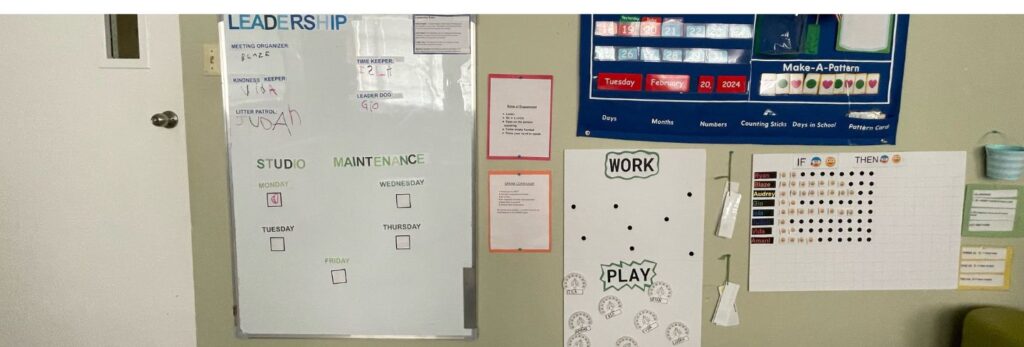As important as developing reading, writing, and math skills are growing the skills that help children forge confident paths into their futures. An independent child approaches the world ready to accept challenges and able to problem-solve. When we foster children’s independence, we boost their spirit of success.
See if this scenario sounds familiar. You have to get your child to school, and then you need to get back home to log into an important meeting. You’re in a rush, so you grab your child’s snack, tell them to fix their sock that’s inside out, and tote their backpack to the car for them. Upon arriving back home after drop-off, you see that your child left an important project on the kitchen table, so when you catch a break from work, you run your child’s poster to school.
We’ve all been guilty at one time or another of doing tasks for our kids to help them avoid consequences like being late or unprepared. However, when we step between a child and a minor daily problem, we may be standing in the way of their independence. Instead, letting children figure out solutions to their problems will help them learn to help themselves. The following tips can aid in guiding your child towards greater independence.
- Take time to teach at the right times. When you’re running out the door, it’s not the most opportune time to teach. Setting time aside when the hours are more relaxed will allow you to patiently teach your child independence skills such as tying shoes, packing a lunch, or moving through a morning routine. Practice routines and skills on non-school or work days and watch your child start putting them into practice when time counts!
- Excuse the mess. Part of growing up is learning to do tasks like preparing a simple meal, folding and putting laundry, and cleaning a play area or workspace. Even older elementary-aged children are still refining their fine motor skills, so spills and messy processes are bound to happen. When the inevitable dish breaks or other mishap occurs, assure your child that mistakes are part of learning and help them think of ways to fix the problem at hand rather than dwell on it.
- Incorporate visual schedules. Think about how often you glance at your agenda planner or phone calendar to prompt yourself about the day’s happenings. If you had to rely only on what information you’d been told or what you could remember, you might be in trouble. While verbal communication can be fleeting— it’s the adage of in one ear and out the other, visual information is constant. Giving your child visual schedules can ease the prompts and reminders you give your child by providing them with a tool that helps them self-prompt for daily routines. Examples of visual schedules are putting a laminated list of get-ready tasks on the bathroom mirror, creating an after-school to-do list to prompt chores, or putting a schedule on the back of your child’s bedroom door for daily evening tasks like picking up toys and dirty laundry, putting a backpack together for the next day, and selecting the next day’s clothes. Visual schedules can be created as simple lists for readers or in pictures for younger children or non-readers.
- Let your child fail. This one is tough to do, but failures are some of life’s greatest teachers. When we allow children to feel the emotions that come with forgetting to do something, choosing an unkind action, or accidentally breaking something, we will help them engage high-order thinking skills to remedy their situations. Talk with your child about the discomfort they are experiencing in their physical world or interpersonal relationships and give them the tools to seek comfort and restoration on their own. As a result, their independence will grow as well as their communication skills.
- Give your child responsibilities. Whether it’s taking the family pet on a walk around the block or setting the table for dinner, including your child in your family’s day-to-day tasks, gives them a sense of importance. Your child will feel empowered through knowing you have faith in them to pitch in, and they’ll be encouraged to take on more tasks without you even asking.
Apollo Academy is passionate about equipping students with the skills they need to live out their hero’s journey. We know independent kids become tomorrow’s innovators and community leaders. We’d invite you to learn more about Apollo Academy and our approach to education by scheduling an intro call here or by checking out our resources here.


